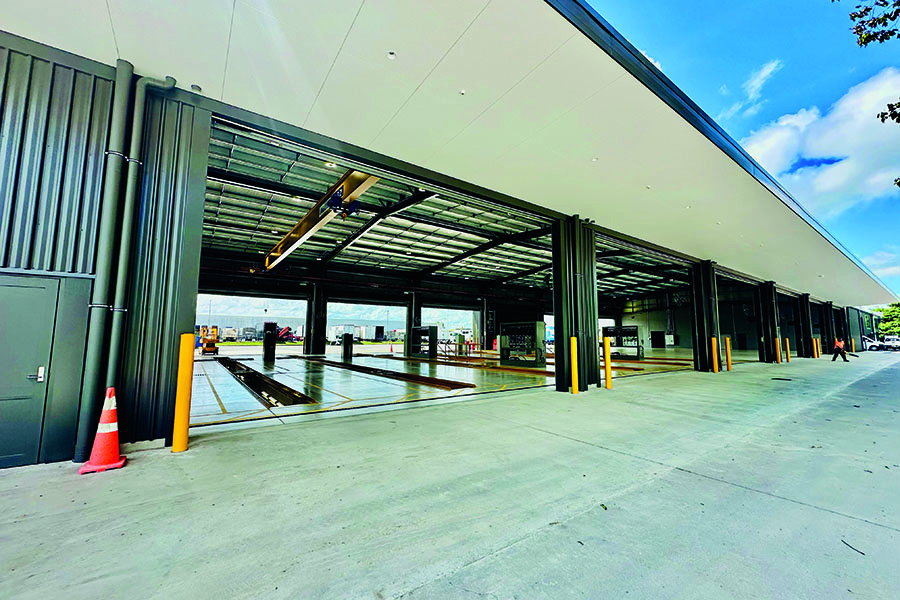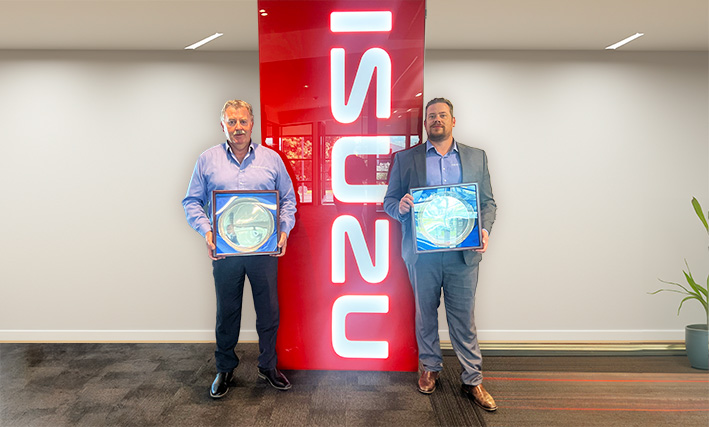Umesh Nand is a diesel mechanic who’s been in New Zealand for 11 years, and with CAL ISUZU for five. Recently, he’s been working with an English Language Partners’ teacher to improve his written and workplace English. What’s more, he has his lessons ‘on the company’ in company time.
Umesh is Fijian Indian and his first language is Hindi, and while his spoken English is pretty good, his boss, Mechanical Service Manager Alex Boles, thought his written language could do with some fine tuning.
“Every truck we service has a job-story and we need to understand that story correctly,” says Alex.
“There’s no room for error or misunderstanding. It has to be absolutely accurate. Our customers are paying big money and they need to understand what they are paying for, that what they have requested has been done, and we need to be able to clearly demonstrate that the price we’re charging for the work is justified.”
Alex had worked with English Language Partners when two Sri Lankan mechanics needed to improve their English, but they studied off site at night classes. Because Umesh lives in Huntly, Alex says it made sense for him to learn at work.
“He needed a bit of a push to accept our offer of English lessons, but since he started we’ve definitely seen improvements. He can see where he’s gone wrong and he’s self-correcting.”
Umesh’s major issue was tenses; past, present and future. In his job-stories, Umesh must state what needs doing, what he’s done and what remains to be done. Get the tenses wrong and there can be confusion and at worst, a vehicle could go out on the road without the necessary work being completed.
The job-stories are the focus of the weekly sessions Umesh has with teacher Jo Kettell. “It’s very targeted learning,” Jo says. “We go through the job sheets and Umesh is able to see where he’s made a mistake and correct it.”
Jo says Umesh is now a lot more confident about speaking up in the workshop if he doesn’t understand. He’s extending his vocabulary and is also better at making himself understood.
Umesh admits he was initially nervous about taking lessons.
“It was a bit scary,” he says. “But I am comfortable coming to lessons now and I’m definitely more confident. Not just at work, but at home too. I’m able to use better English and I can practise with my children.”
Alex says diesel mechanics are hard to come by in New Zealand with about 90% recruited off shore.
That can be a long and complicated exercise, so it makes sense that once you have employed someone you do your best to retain them.
“I see English learning as a good investment,” Alex says. “The only cost is an hour’s work, so it makes sense to have it as part of a worker’s induction. I see it as a win-win.”
Meanwhile, Jo says she takes her hat off to CAL ISUZU for their forward thinking.
“They recognised they had a problem and addressed it. I think more workplaces would find value in doing the same.”

